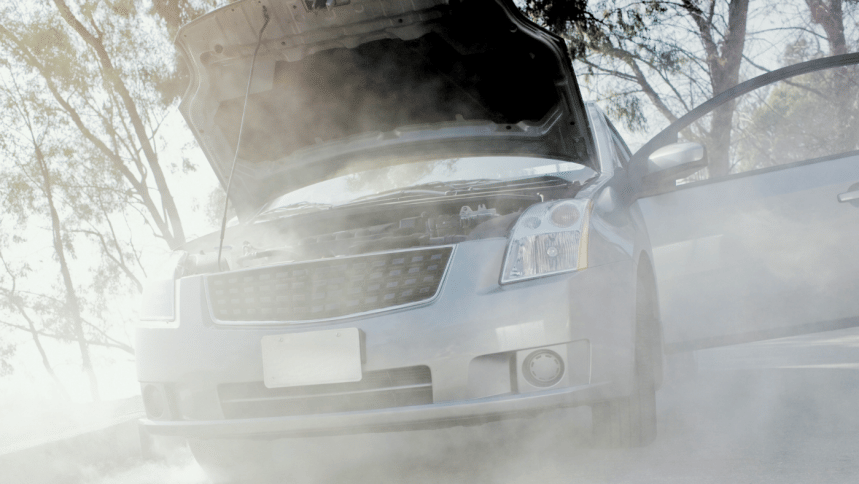How to stop your car engine from overheating

2024 is already looking to be a record-breaking year in terms of heat. But even if you may survive through the rising temperatures, it is essential to ensure your car doesn't go through the same ordeal. There's nothing quite like the sinking feeling when your temperature gauge starts edging higher than your favourite band's album launch party!
An overheating engine is one of the most concerning issues a car owner can face – right up there with having your vehicle totalled in an accident. When an engine overheats, it can lead to catastrophic damage like warped cylinder heads, cracked engine blocks, or blown head gaskets. Repairing this level of damage is often extremely costly, so preventing overheating in the first place should be a top priority.
But don't sweat it because we're here to help you keep cool and prevent getting steamed on the side of the road.
The importance of regular maintenance
The first line of defence against engine overheating is regular maintenance.
Sticking to your vehicle's recommended service schedule ensures all cooling system components are inspected and working correctly. This includes checking coolant levels and condition, verifying the radiator and water pump are operating correctly, and ensuring belts and hoses are in good shape with no cracks or leaks.
Coolant: The lifeblood of the cooling system
Engine coolant plays a vital role in temperature regulation by circulating through the engine to absorb heat and dissipate it through the radiator. Always keep an eye on your coolant level and refill as needed with the proper type for your vehicle. Over time, coolant can become contaminated, so it should be thoroughly flushed and replaced according to your manufacturer's recommendations, usually every 30,000-60,000 miles.
Maintaining proper airflow
For the cooling system to work efficiently, it needs proper airflow over the radiator and through the engine bay. Any obstructions like leaves, dirt, debris or even plastic bags can restrict this airflow and cause heat to build up. Periodically inspect the radiator fins and engine bay, clearing out anything blocking the airflow.
Signs of trouble and when to pull over
Always pay close attention to your temperature gauge while driving. If you notice the needle climbing into the hot zone, it's a sign the engine is overheating, and action needs to be taken immediately. Pull over as soon as safely possible, shut off the engine, and allow it to cool before attempting to drive further. Other warning signs include visible steam or coolant leaking from under the hood.
Reduce strain to avoid overheating
Being mindful of your driving loads and conditions can help prevent engine overheating. Excess cargo weight, towing heavy trailers, and driving aggressively can all place more strain on the engine. Hot weather like ours and stop-and-go city driving are also contributing factors. Try to reduce these types of added stress whenever possible.
Don't ignore or delay repairs
If you do experience an overheating issue, don't ignore it or delay getting it repaired. Continuing to drive with an overheated engine or cooling system problem can quickly lead to severe and costly damage. At the first signs of trouble, have the vehicle diagnosed and serviced by a qualified technician right away. By staying proactive with regular maintenance, monitoring your coolant system, and being attentive to warning signs, you can help avoid the nightmare of engine overheating.
With proper care and maintenance, there's no reason an engine can't run cool and efficiently for well over 100,000 miles. So keep a watchful eye, and you can avoid turning your car into a smouldering scrap heap on the side of the highway. Being proactive now saves you from the costs, hassles, and headaches of potential overheating issues down the road.
Don't let an overheating emergency ruin your drive – keep your car's cooling system in top shape, and it will keep your engine running reliably for years to come.

 For all latest news, follow The Daily Star's Google News channel.
For all latest news, follow The Daily Star's Google News channel. 








Comments